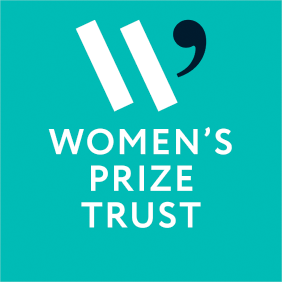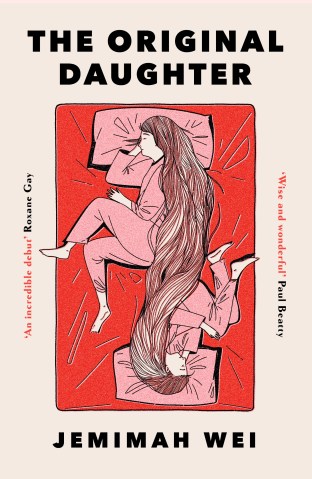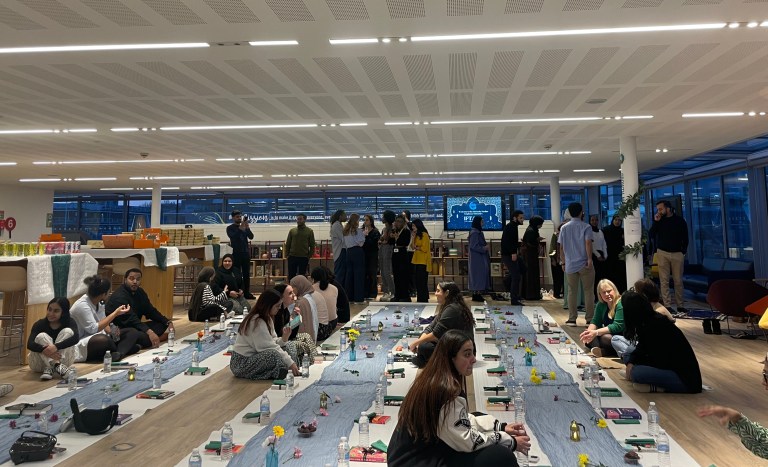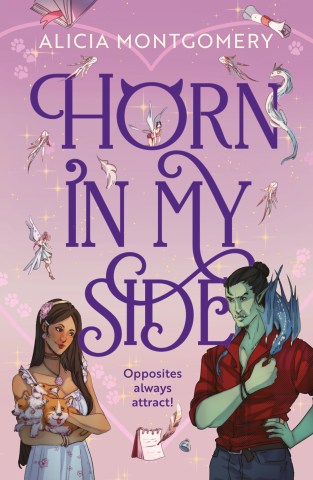Hachette UK and Women’s Prize Trust mark International Women’s Day with ‘Be The Leading Voice’ event

Hachette UK’s Gender Balance Network marked International Women’s Day 2025 last week with an event to celebrate and spotlight female commissioners publishing non-fiction by women.
Entitled “Be the Leading Voice: women publishing non-fiction by women”, the panel held on Monday 17th March included Anna Baty (Hodder Press), Hannah Chukwu (Dialogue Books), Sarah Savitt (Virago), and Anna Steadman (Headline Home). The conversation was chaired by Claire Shanahan, Executive Director of the Women’s Prize Trust.
Last year, the Women’s Prize Trust launched its inaugural non-fiction prize in response to research which found that only 35% of books awarded a non-fiction prize over the past 10 years were written by women. Additionally, they found that women publishing non-fiction are less likely to be reviewed in the UK national media, are more likely to receive a lower advance, and are less likely to appear in the ‘Best Books of the Year’ newspaper articles.
Seeking to draw attention to the stark data, to celebrate forthcoming non-fiction by women publishing at Hachette UK, and to stimulate further commissioning of quality non-fiction by women, the Gender Balance Network programmed a range of editors who publish across genres including literary, history, science, memoir, health and lifestyle. In support of the Women’s Prize Trust’s necessary work and research, Hachette UK offered the charity an accompanying donation alongside the event.
In the hour-long event at Carmelite House and livestreamed to Hachette’s national offices and those working remotely, the wide-ranging conversation encompassed how to find, support and mentor female non-fiction writers, the use of both instinct and data to inform commissioning, and whether women are asked to add a more personal narrative to their non-fiction writing, even when irrelevant to the book’s subject.
Anna Baty spoke about the importance of having confidence in authors’ long-term careers and investing in talent by taking the time to work closely with authors to build confidence. Speaking about the future of the market, Hannah Chukwu referenced Hachette UK’s Raising Readers campaign and the importance of creating non-fiction reading habits in female readers from an early age.
Claire Shanahan cited Nielsen research which shows that women buy books written by men and women, whilst men tend to read books by men (source). Anna Steadman outlined the potential to reach wider audiences through digital formats, especially through supporting audiobooks with publicity and podcast interviews, where younger and male readers are more engaged.
Sarah Savitt discussed leveraging the legacy and prestige of feminist press Virago (1974) to always champion untold stories whilst keeping the list forward facing and fresh. Commissioning on younger lists at Dialogue (2017) and Hodder Press (2022) respectively, Hannah Chukwu and Anna Baty discussed the challenges and opportunities of championing new voices in-house and beyond. Hannah Chukwu spoke about the challenge of commissioning new voices in an industry led by comparisons, and Anna Baty recommended use of data, such as the Women’s Prize reporting or in-house tools such as Hachette’s Consumer Insight team, to “have confidence in new commissioning, even when there isn’t [sales] precedence”. Dialogue focusses on publishing underrepresented voices, whilst Hodder Press is seeking to increase representation of women in non-fiction.
The panel spoke about the importance of diversity amongst commissioners as well as authors, referencing the higher likelihood of female authors being asked to bring personal life experiences into the agent pitch, the book itself, or publicity campaign. Hannah Chukwu said, “I think that that is even more pronounced when they’re from an underrepresented group or there’s an intersectional aspect… [it underlines the importance of] having diversity in house, and people across the whole team who know how to properly address those issues and to make sure an author feels supported. Because if you don’t have a good experience with your first book, what would compel you to write a second?”
Claire Shanahan, Executive Director of the Women’s Prize said, “What a privilege to talk with four of Hachette’s most brilliant women, committed to opening up non-fiction to female writers and other under-represented voices, and a huge thank you to Hachette’s for their charitable donation supporting our work at the Women’s Prize Trust. The gender pay gap for writers sits at 36% and has grown in the past five years, so whilst we think we’re making progress, the data tells another story – and its women like this who are doing the work to address it. It’s crucial that we collaborate and pool resources, skills and ideas across the industry, to keep spotlighting and tackling the stark imbalance. I’m delighted to have stepped closer towards this through this collaborative event with Hachette’s Gender Balance Network, and the next steps we agreed to ensure we have a multiplicity of perspectives for the benefit of readers.”
Niamh Anderson, Policy Lead at Hachette UK’s Gender Balance Network said, “We’re delighted to have brought together five powerhouse women for this important conversation on behalf of Hachette UK’s Gender Balance Network, but we’re hopeful it will contribute to further ambitious commissioning of non-fiction by women across the industry as a whole. The work of the Women’s Prize for Non-Fiction is invaluable, but it alone cannot transform the publishing landscape. Every member of the publishing industry shares the responsibility to support and drive change, to ensure we inspire and find our future female non-fiction writers and readers.”






